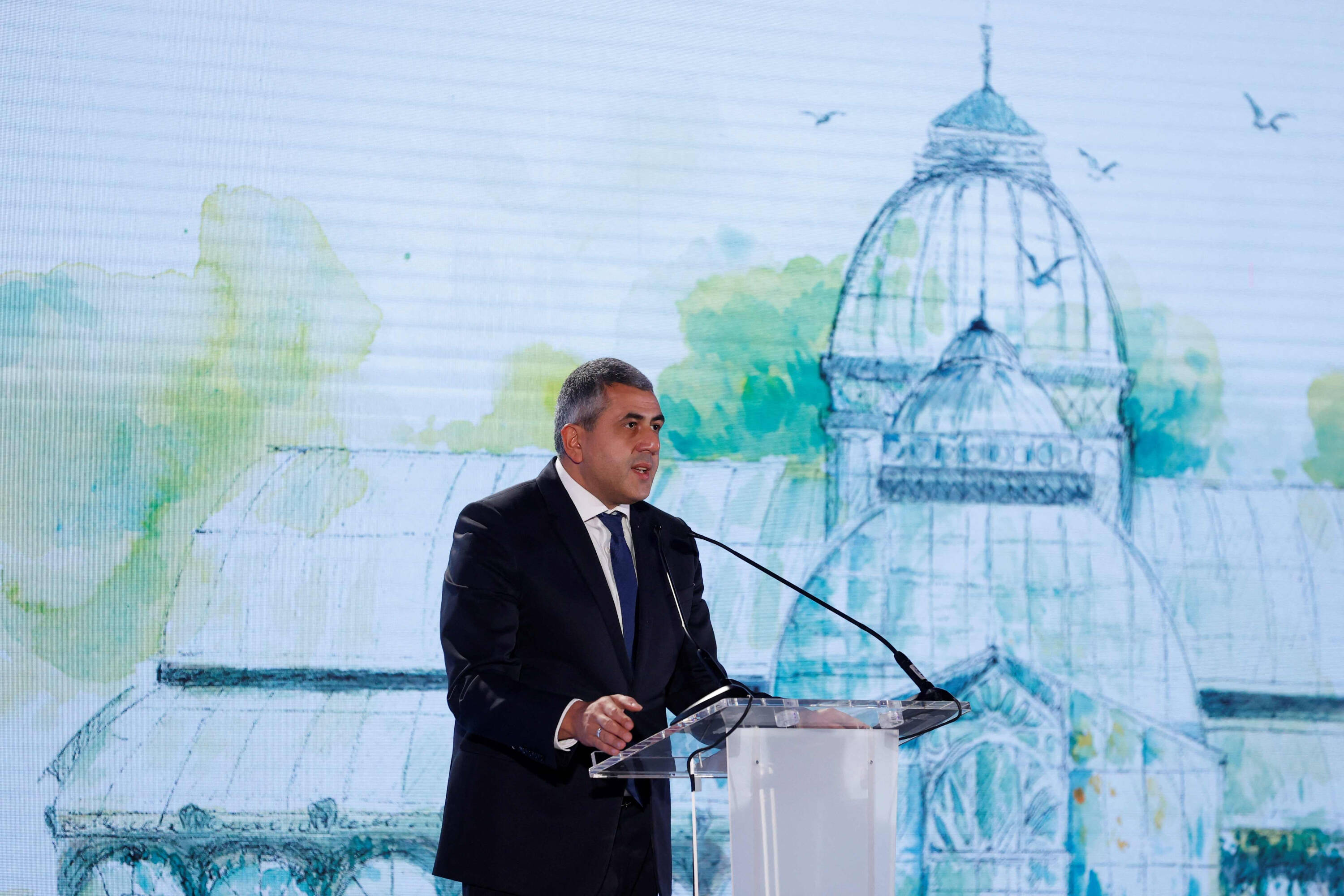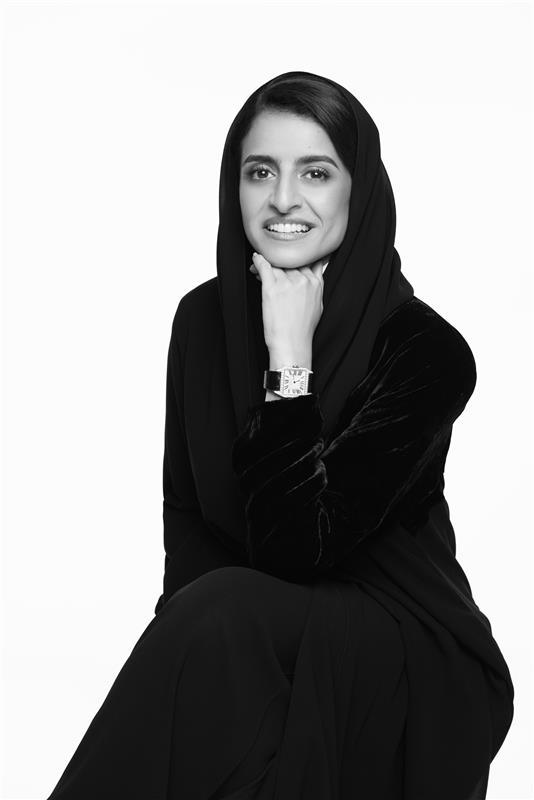For the first time, an Emirati woman is running for Secretary-General of UN Tourism: EL TIEMPO spoke with her.

Shaikha Al Nowais is one of six candidates for the position of Secretary-General of the World Tourism Organization (UNWTO) for the 2026-2029 term. Gloria Guevara, former Minister of Tourism of Mexico; the current Secretary-General, Zurab Pololikashvili; former Greek Minister of Tourism Harry Theoharis; Ghanaian Muhamad Adam; and Tunisian Habib Ammar are the other five candidates.

Zurab Pololikashvili, current Secretary General of the UNWTO. Photo: Juanjo Martín / POOL / AFP
The UN Tourism Executive Council, composed of 35 member states, will meet from May 29 to 30 to secretly vote on the recommendation of the new Secretary-General. At least 18 votes are required to be elected.
As Corporate Vice President of Owner Relationship Management at Rotana (a Middle East and Africa hotel group), Al Nowais championed sustainable tourism initiatives in the Middle East, Africa, Eastern Europe, and Turkey.
She is currently the Chair of the Tourism Working Group at the Abu Dhabi Chamber of Commerce ; a member of the Abu Dhabi Business Women's Council; a member of the UAE Tourism Council's advisory board; and a member of the Board of Trustees of the Les Roches Hospitality Academy, where she promotes policy advocacy, economic inclusion, and industry education.
A graduate of Zayed University with a degree in Finance, Al Nowais has over 16 years of experience in the hospitality sector within a corporate environment.
Her vision as a candidate for the UNWTO Secretary-General focuses on sustainability, digital transformation, economic empowerment, ethical governance , and arts and culture. Her goal will be to create an ecosystem where tourism is a catalyst for inclusion and global prosperity.
Shaikha Al Nowais was nominated by the UAE Ministry of Economy and Ministry of Foreign Affairs.
The candidate for the position spoke with EL TIEMPO about the challenges facing the sector, what she would do if elected, and her vision for digitalization in the industry.

Shaikha Al Nowais was nominated by the Ministry of Economy. Photo: Courtesy.
My role has allowed me to listen closely to the private sector, especially hotel operators in Abu Dhabi and Al Ain. We have maintained a dialogue about the challenges we face in the tourism industry. We worked together to propose solutions to government authorities that would facilitate operations, improve policies, and create a more tourist-friendly travel experience—from arrival at the airport to using public transportation.
Safety is one of the main reasons tourists choose the UAE. This is something we're proud of. One of the initiatives that had the most impact was the reduction in regional taxes, which helped us recover, especially after COVID. Any savings we were able to make in the private sector were reinvested in training and promotion. The UAE recorded 26 percent growth in the sector, driven primarily by international promotion and major events like the Coldplay concert, which garner international attention.
Mass tourism is a growing global concern. How can destinations better manage this problem and avoid these unintended consequences? The first thing is that we must focus on developing less crowded areas within countries. Take Spain or Colombia, for example: there are many beautiful places that are not overcrowded. With the right investment, from both the public and private sectors, these areas can thrive.
The UAE has contributed $15 million to the World Tourism Organization, funds that can be used to develop these types of destinations. The goal is to shift attention to less crowded places and improve services and experiences. And this is done with resources.
What challenges did you face in promoting sustainable tourism in regions such as the Middle East, Africa, Eastern Europe, and Türkiye? The main challenge is investment. But once good practices are implemented and people see positive results, the impact becomes clear not only for the economy but also for the environment. Sustainable tourism must consider both aspects.
Awareness is also essential. People must understand the economic benefits and environmental responsibility that come with investing in sustainability.
How is the digital transformation impacting tourism worldwide? Digital transformation must be kept simple and focused on collecting useful data. Data is power, and if you have a lot of information, you must know how and when to use it.
It's necessary to know how to use this data to better serve guests and to manage resources, equipment, training, and everything else that revolves around tourism. Data will always be key, but, in reality, this industry is centered on people and will remain so.
What role can artificial intelligence play in the future of tourism, and how can it be used ethically? Artificial intelligence can help us better manage destinations and prevent problems like mass tourism. We'll know what types of visitors are interested in visiting a place, when it's available, and when we should close certain areas. It will allow us to plan proactively.
How can collaboration between the public and private sectors be improved for good tourism management? Collaboration, in many ways, allows us to create the right incentives and, in areas like sustainability, ensure that measures are in place to encourage the private sector to invest responsibly and sustainably. For example, we could introduce tax breaks or grace periods for those who commit to sustainable and responsible development. This is one of the strategies that could be implemented.
Through the private sector, we can learn what types of policies to implement and achieve two-way communication. There must be constant communication between the public and private sectors because the public sector cannot operate without the private sector. They complement each other. Furthermore, 70 percent of the global economy comes from the private sector, but we must motivate them and provide them with the right incentives to make them want to invest.
How can we ensure that communities involved in tourism are protected and supported? This is very important and is also part of my five pillars: education and training. It's essential to ensure that the community and the population living in these destinations are prepared to welcome tourists: that they know what to do and how to interact with them. It's essential that they have the right knowledge, that they understand the impact of tourism on their economy, and that they want to stay and develop in this sector.
They need to know the results so they can offer better service. We also need to ensure they have the necessary resources. All of this would contribute to creating an ideal platform for a responsible tourism environment.
You've mentioned that if elected, your first initiative would be to propose a global pact for regenerative tourism. What would that entail and what would its pillars be? I believe that, first and foremost, communication, governance, and transparency are key. There must be open dialogue among the members of the Executive Board. We need to work together, in a collaborative effort, to ensure that all the pillars I've mentioned can be achieved, according to the priority needs of each context.
In Colombia, some tourism initiatives are often linked to peacebuilding. What role can tourism play in promoting peace globally? This can be achieved through cultural exchange, open dialogue, and mutual respect. Openness and a welcoming attitude among people are essential. Tourism is about hospitality, and hospitality is about welcoming people and being kind to them.
So, again, it all comes down to results and impacts. If we see positive results, tourism will continue to grow in a positive way.
As an Emirati woman, what would it mean to you to become UNWTO Secretary-General? What do you hope to contribute beyond what you've already mentioned? I want to make a difference and I want to bring about change. I come from the private sector, and I do so with pride, gratitude, and experience in representing my country. I want to share the UAE's success story and show how we can implement what the country has achieved, but on a larger scale.
ANGIE RODRÍGUEZ - TRAVEL EDITORIAL - @ANGS0614
eltiempo





